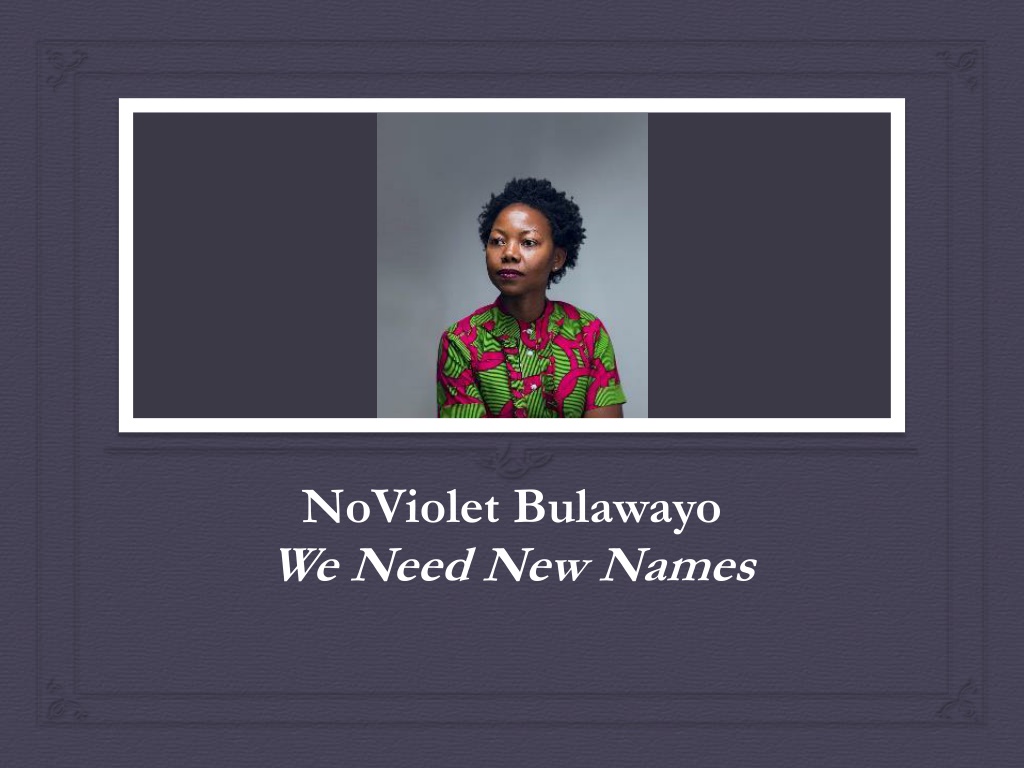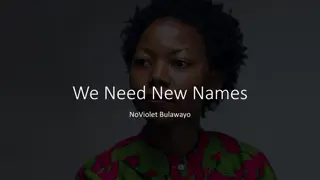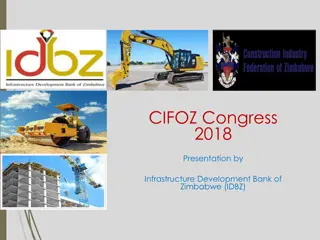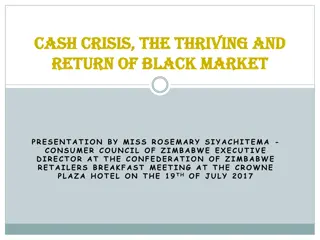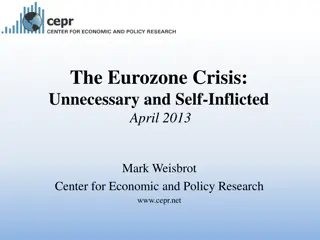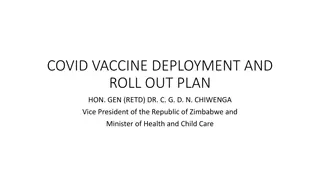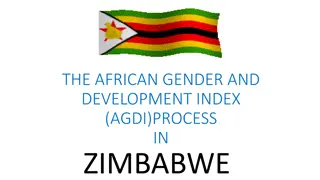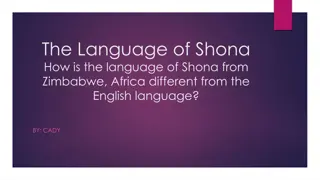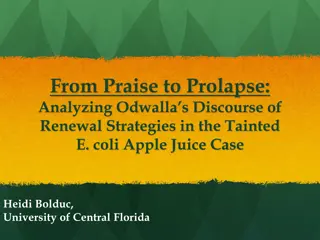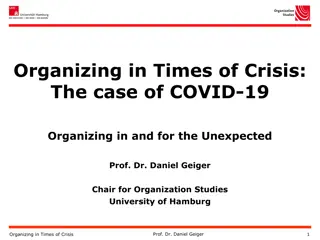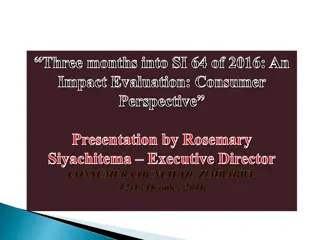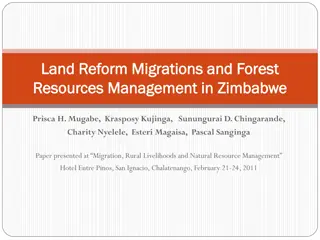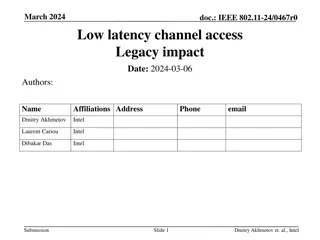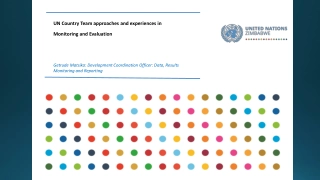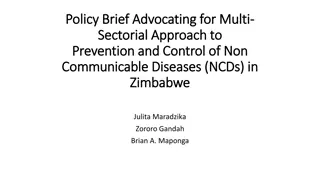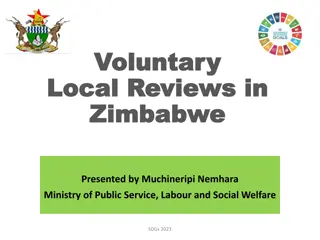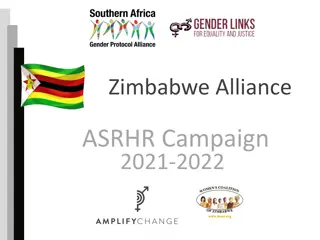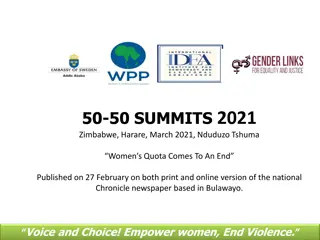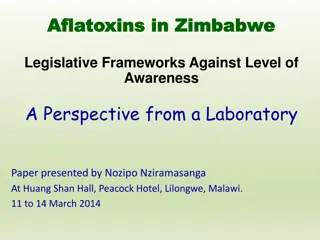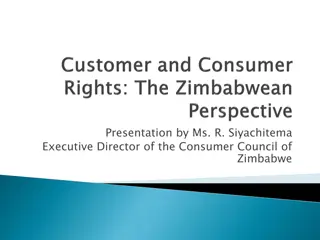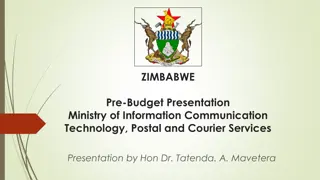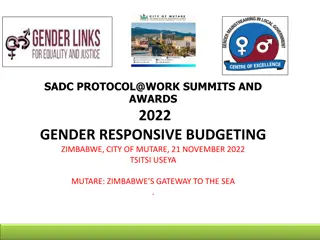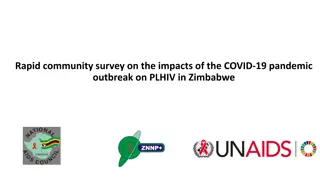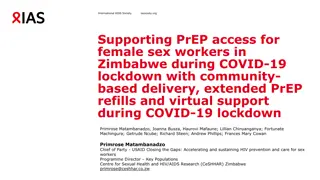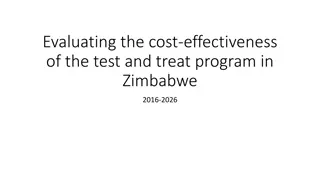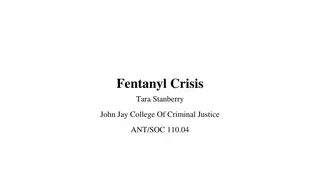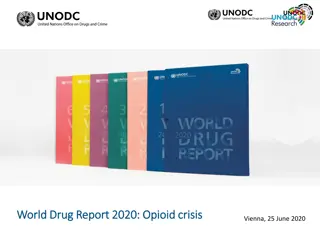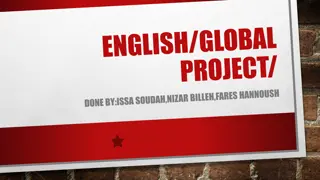The Legacy of Gukurahundi: Ndebele Particularism in Post-Crisis Zimbabwe
A campaign of terror known as Gukurahundi targeted the Ndebele people in Matabeleland, Zimbabwe, with over 20,000 civilians killed in the 1980s. This dark chapter continues to haunt the country as the Ndebele's experiences and history are marginalized by the dominant Shona narrative. Ndebele particularism, rooted in distinct pre-colonial histories, fuels calls for a restoration of Ndebele autonomy to safeguard against future atrocities. The quest for self-determination reflects a deep-seated fear of repression under a centralized state, echoing the unresolved trauma of Gukurahundi.
Download Presentation

Please find below an Image/Link to download the presentation.
The content on the website is provided AS IS for your information and personal use only. It may not be sold, licensed, or shared on other websites without obtaining consent from the author. Download presentation by click this link. If you encounter any issues during the download, it is possible that the publisher has removed the file from their server.
E N D
Presentation Transcript
NoViolet Bulawayo We Need New Names
From January 1983, a campaign of terror was waged against the Ndebele people in Matabeleland in western Zimbabwe. The so-called Gukurahundi massacres remain the darkest period in the country s post-independence history, when more than 20,000 civilians were killed by Robert Mugabe s feared Fifth Brigade. No one has accepted the blame for the violence, but the recent release (2015) of historical documents reinforce the view that Gukurahundi a Shona word for the spring rains that sweep away dry season chaff was closely associated with Mugabe s Zanu-PF party s efforts to eliminate opposition groups after independence in 1980. The violence was directed at the Ndebele people, who overwhelmingly supported Joshua Nkomo, Mugabe s nationalist rival (and ally) in the anti- colonial struggle. In the words of Mugabe, the people of Matabeleland needed to be re-educated . The little that Mugabe has said since the 1980s has been a mixture of obfuscation and denial. The closest he has come to admitting official responsibility was after the death of Nkomo in 1999, when he described the early 1980s as a moment of madness an ambivalent statement not since repeated. In a later interview, he blamed the Gukurahundi killings on armed bandits coordinated by Zapu and a few subordinate, North Korean trained, Fifth Brigade soldiers. But recorded correspondence from his colleagues tells a different story, making clear that the killings were the result of a formal, broad-based decision by the leadership. Estimates of the death toll are frequently put at 20,000, a figure first mooted by Nkomo at the time, but on-the-ground surveys were piecemeal and vast areas of Matabeleland remain under- researched. Ongoing fear and the death of witnesses provide further challenges. Whilst a forensically accurate number will never be possible, evidence suggests that the standard estimate is conservative. Oral testimony from Zimbabweans in key government positions during the 1980s disinters a host of killings that were previously unknown.
what I have termed Ndebele particularism is a complex phenomenon that cannot be ignored in the imaginations of a post-crisis Zimbabwe. It is at the root of the problem of how two nations (Shona and Ndebele) with different pre-colonial histories and memories can be invited into one centralised state that masquerades as a state adhering to the Shona worldview. Ndebele particularism does not fit easily into this imagined nation and the state where Ndebele experiences, histories and heroes are subordinated to triumphant and hegemonic Shona history, if not completely ignored. The way the post-colonial state was abused by ZANU-PF in its drive to violently destroy Ndebele particularism set in motion the current Matabeleland politics of alienation, resentment and grievance that are combining to fuel the desire for a restoration of the pre- colonial Ndebele state. There is pervasive fear in Matabeleland that without a state of their own the Ndebele remain in danger of a repetition of Gukurahundi. The Ndebele people have come to realise that states are used as vehicles to suppress unwanted communities and hence their drive for their own state that will cater for their own national interests (Sabelo Ndlovu-Gatsheni, 2008)
Bulawayo features centrally in Ikhide Ikheloas controversial think piece How Not to Write About Africa , which concludes, based on a review of the entries for the 2011 Caine Prize competition, that new writers view Africa through a very narrow prism, all in a bid to win the Caine Prize . Ikheloa predicts Bulawayo s win for her story Hitting Budapest , which became the first chapter in We Need New Names: She sure can write, unfortunately her muse insists on sniffing around Africa s sewers . This assessment draws from a familiar argument about how African literature circulates in Western markets. Critics have argued that writers pander to Western readers drawn to poverty porn stories about darkest Africa ; they produce extroverted or self-anthropologizing works that assume a non-African readership (Sarah Brouillette, On the African Literary Hustle )
Bulawayo is responding to what can be described as the NGOization of African literature. For the recent renaissance in African literature has had little do with development of viable literary readerships in Africa, and viably capitalized production facilities. The post-independence quest to develop literary readerships and publishing and printing trades faced massive hurdles; it was nearly stopped by IMF & World Bank structural adjustment and trade liberalization in the 1990s, and has now been all but abandoned. The field of contemporary Anglophone African literature relies instead on private donors, mainly but not exclusively American, supporting a transnational coterie of editors, writers, prize judges, event organizers, and workshop instructors. The literary works that arise from this milieu of course tend to be targeted at British and American markets (Sarah Brouillette)
The market scene in Nervous Conditions is part of a journey of development. Tambu learns that she does not want to be subject to charity. She wants to be educated and earn a living for herself by other means. Nervous Conditions presents the power to write one s story as the fruit of the narrator s postcolonial bildungsroman. Having experienced development, Tambu is by the end of her story ready to assess it and critique where necessary, and her work will enter the market as an intervention into an otherwise unquestioned tale of progress. It is largely about gaining a voice; being critical. In We Need New Names, the circumscribed subjects of charity have little scope to aspire to anything better. They fixate instead on fantasies of exit. Bulawayo s work thus presents the sad story the poverty porn not as a conduit to anything but as, quite simply, exhausting. The story one is allowed to tell is less gaining a voice than having to accept posturing as a victim. The novel is, then, a self- reflexive work about not wanting to be pigeonholed. It resents the uneven relations that characterize the literary field. These relations ensure the African literary sphere s extroverted reliance on donor support and American consumers (Sarah Brouillette)
